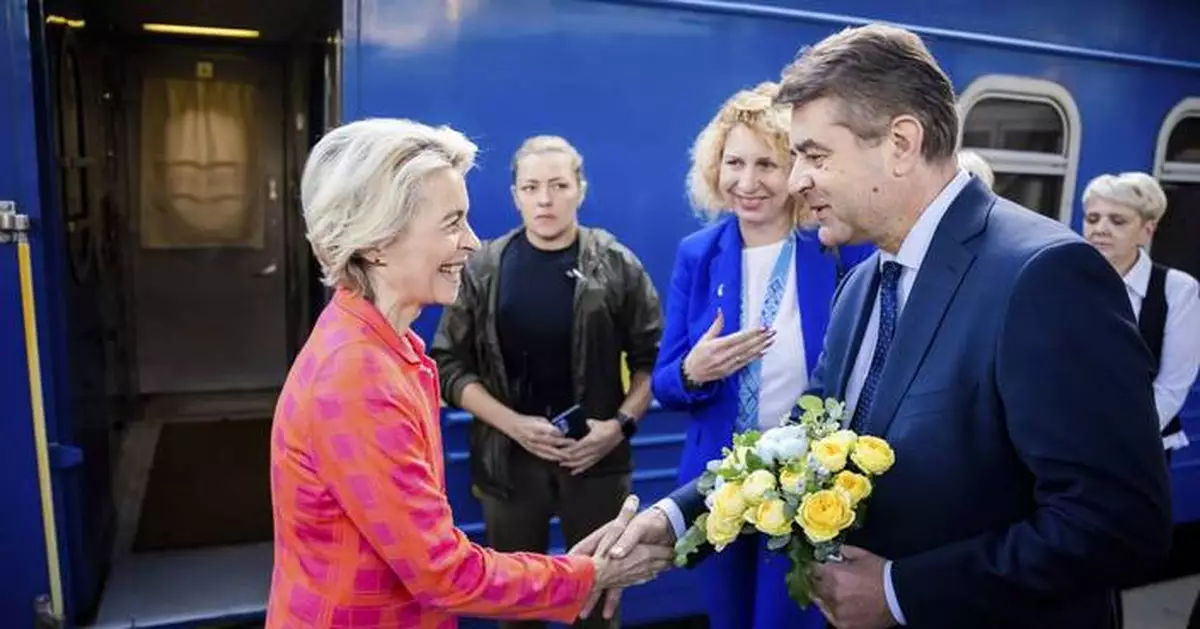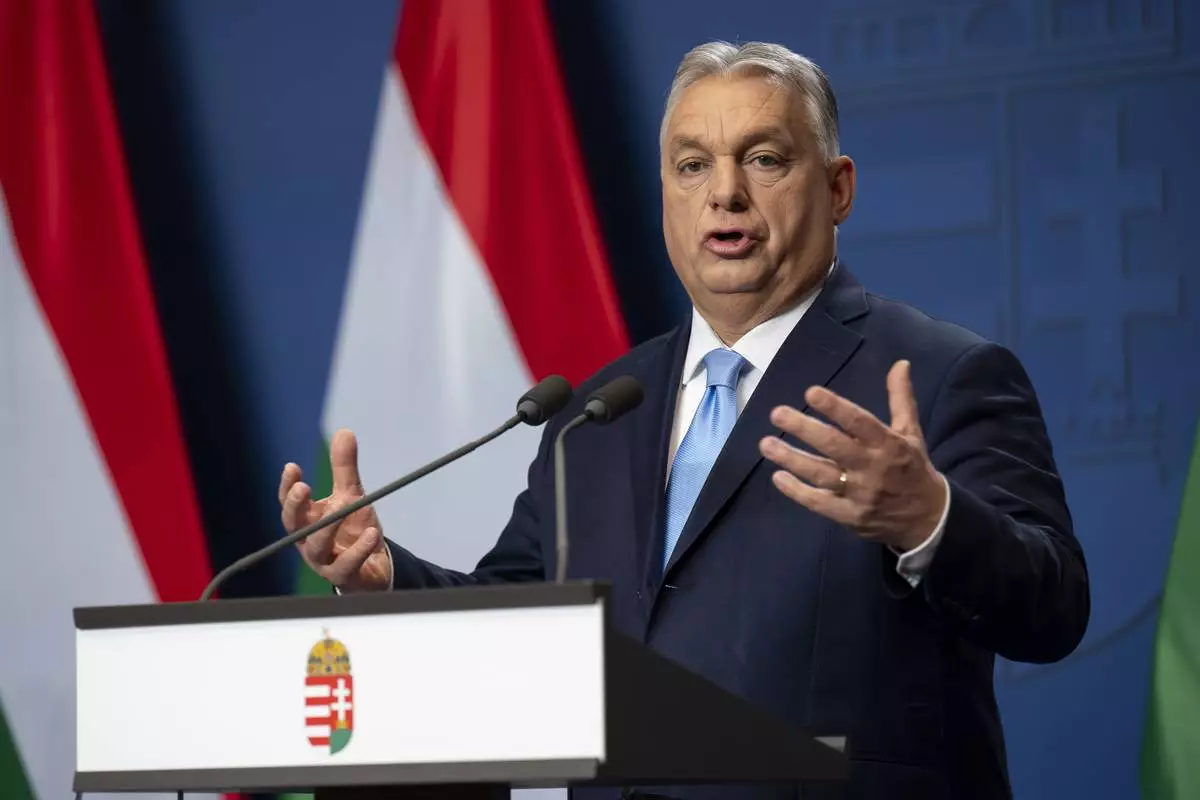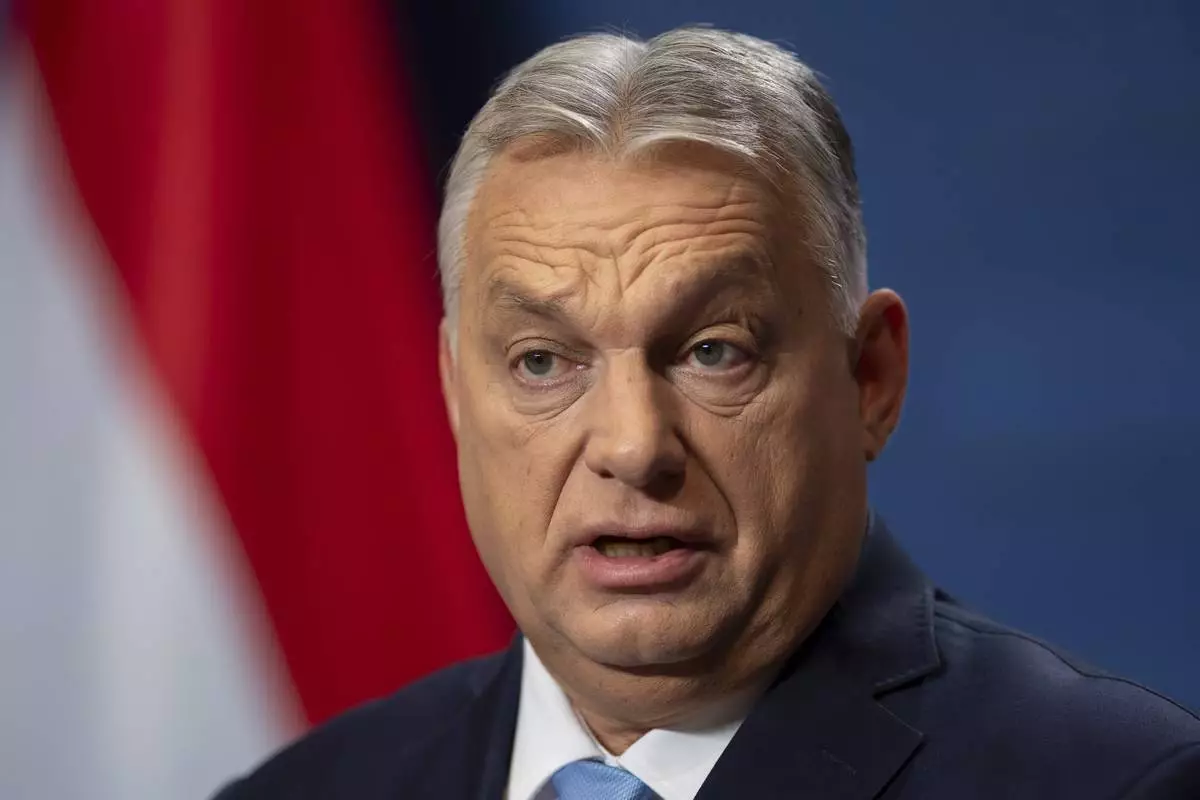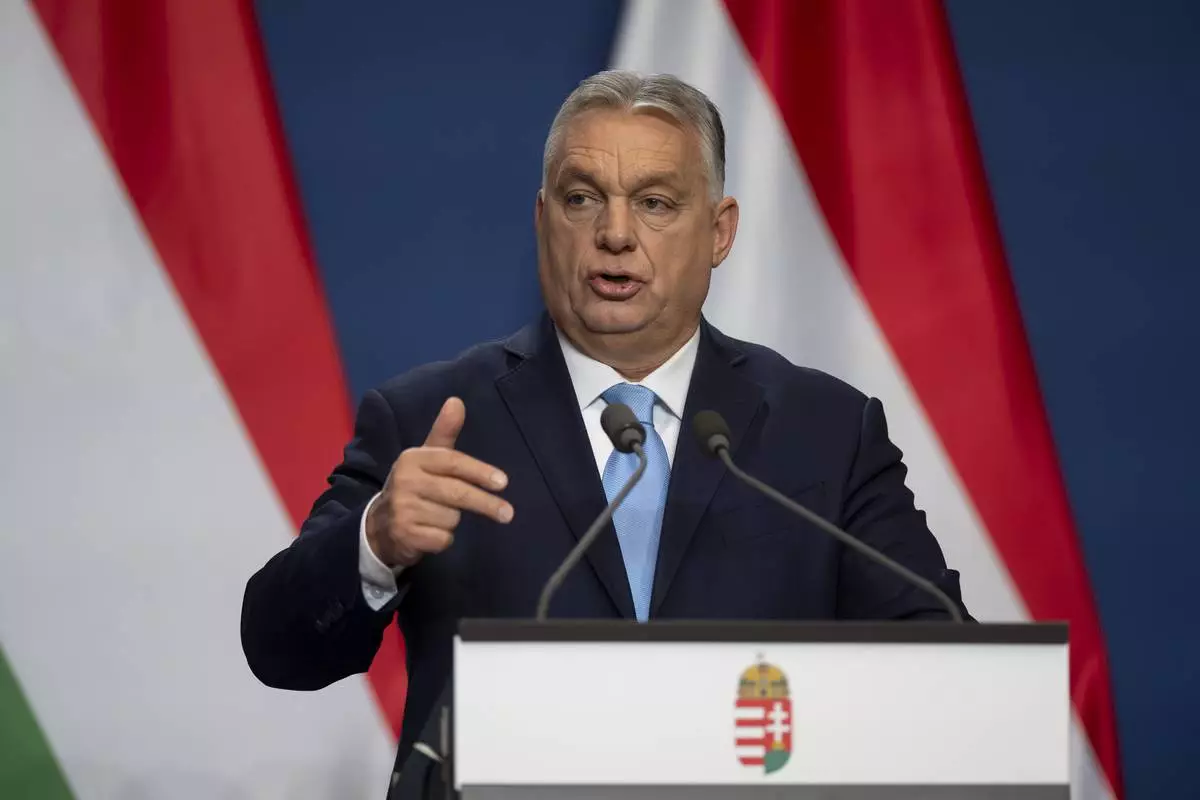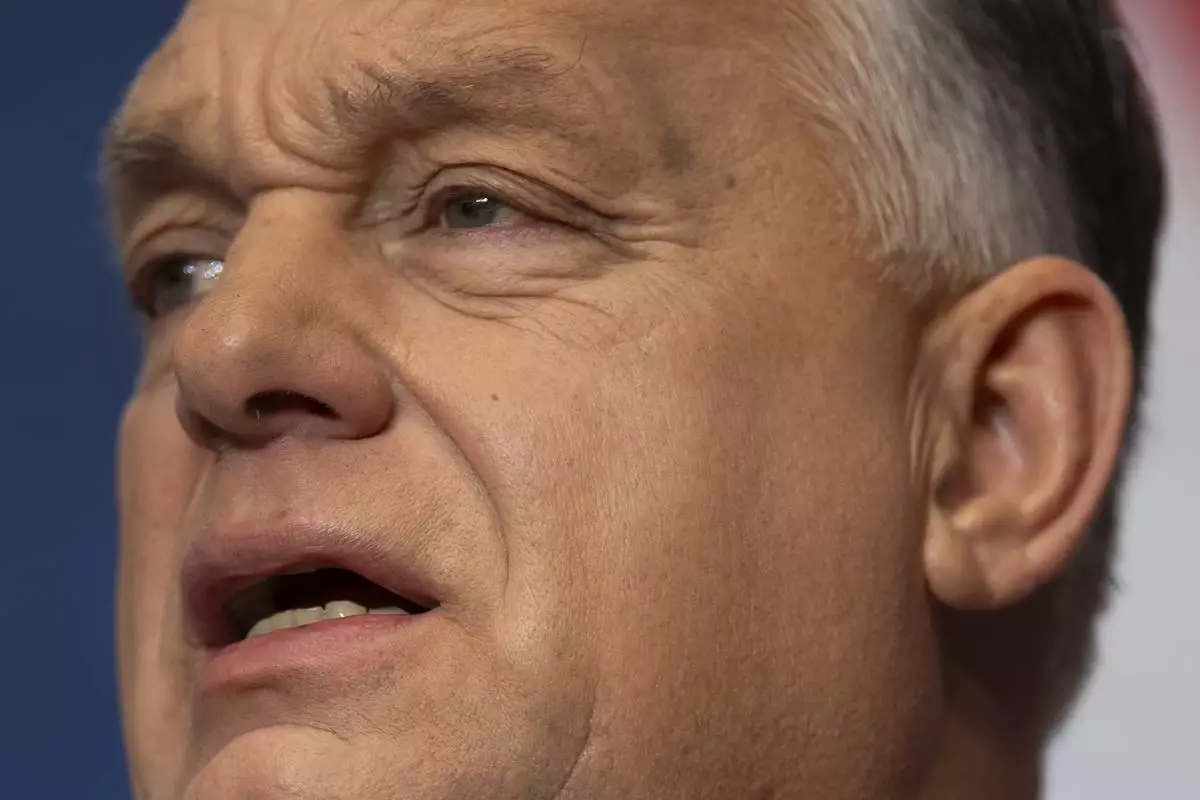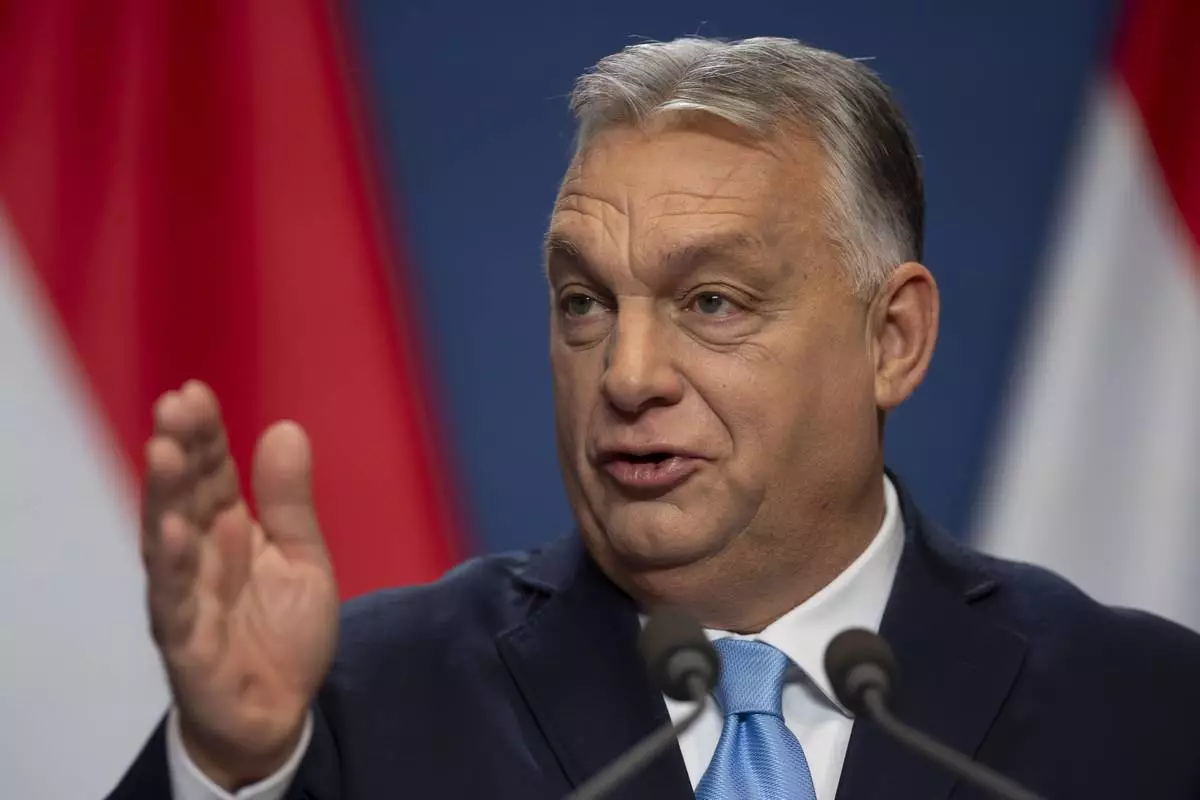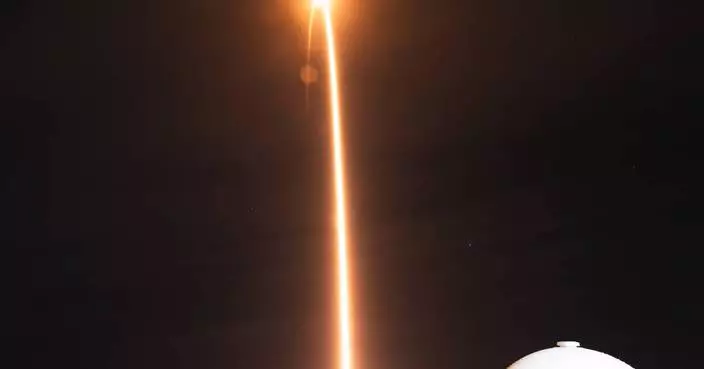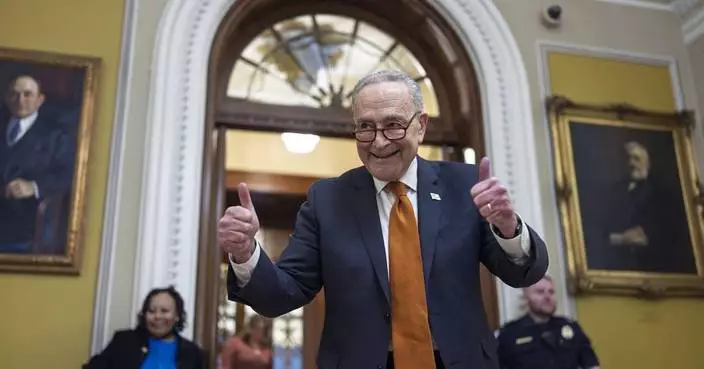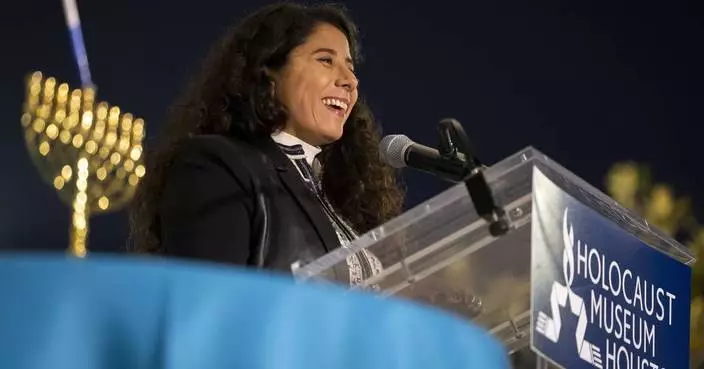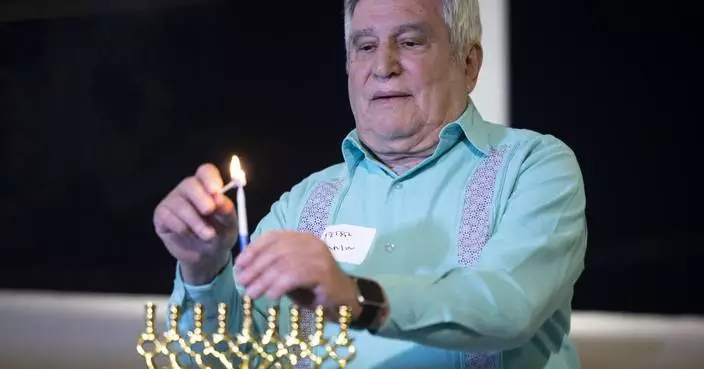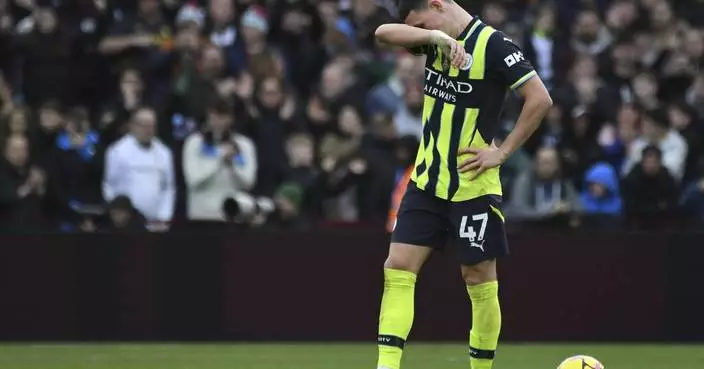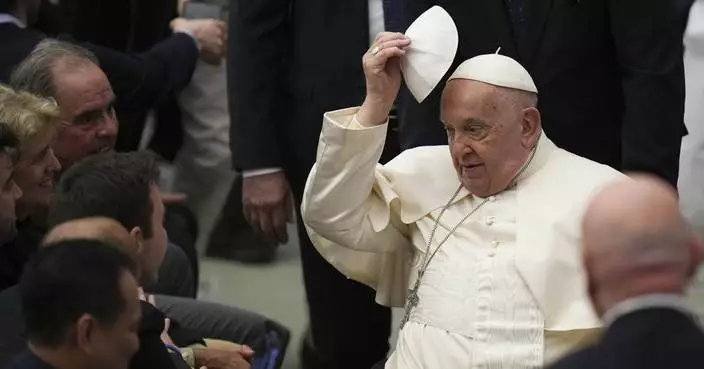KYIV, Ukraine (AP) — The European Union pledged on Friday to lend Ukraine up to 35 billion euros ($39 billion) as part of a loan package organized by the Group of Seven major industrial nations, as it seeks to help the country rebuild its economy and its war-shattered power grid.
G7 leaders agreed in June to engineer a $50 billion loan to help Ukraine in its fight for survival. Interest earned on profits from Russia’s frozen central bank assets would be used as collateral, but progress in distributing the loans has been slow.
“We should make Russia pay for the destruction it caused,” European Commission President Ursula von der Leyen told reporters at a news conference in Kyiv with President Vlodymyr Zelenskyy in Kyiv.
Von der Leyen said that the EU has already provided Ukraine with more than 118 billion euros ($132 billion) in military and economic assistance since the war began in February 2022, “but Russia’s relentless attacks mean further support is necessary.”
“Crucially, this loan will flow straight into your national budget. This will improve Ukraine’s macro-financial stability and it will provide you with significant and much-needed fiscal space. You will decide how best to use the funds, giving you maximum flexibility to meet your needs,” she said.
The loans would be underwritten by the windfall profits earned on almost $300 billion in Russian assets, which have been frozen over its full-scale invasion of Ukraine. The vast majority of that money is held in EU nations, notably Belgium.
Von der Leyen said that the EU is "confident that we can deliver this loan to Ukraine very quickly.” The 27-nation bloc hopes that other G7 countries will follow its lead and start providing loans too.
Zelenskyy said that his priorities are to rebuild Ukraine's energy network, erect more bomb shelters, improve schools and buy more weapons and ammunition.
Von der Leyen arrived in Ukraine on Friday focused on helping the country to restore and reconnect its electricity grid and boost its heating capacity as winter approaches.
Around half of Ukraine’s energy infrastructure has been destroyed during the war with Russia, and rolling electricity blackouts leave parts of the east in darkness for four hours at a time. Von der Leyen said it was the equivalent of all of Latvia, Lithuania and Estonia losing electricity.
Meanwhile, winter is approaching.
“Heating season starts in two weeks and Russia’s relentless attacks on Ukraine’s civilian energy infrastructure aims to inflict maximum damage,” von der Leyen said. “We will help Ukraine in its brave efforts to overcome this.”
The main aim is to help Ukraine decentralize its power grid, and to become less reliant on the big power stations that make easier targets for Russian forces. Around 260 missiles rained down in a major attack on energy infrastructure late last month.
The Europeans have already sent more 10,000 generators and transformers, and they're supplying small and more mobile gas turbines too. These types of electricity-providing equipment are harder to hit and easier to repair.
Ukraine’s winter runs from late October through March, with January and February the toughest months. The Europeans hope to help supply around 25% of the 17 gigawatts of power that the country is likely to need this winter.
One aim of the EU assistance is to provide an incentive for people to stay in Ukraine. About 4 million people have fled since the war began on Feb. 24, 2022, often to Poland and other neighboring countries.
The EU is providing assistance, such as short-term help to find a place to stay, jobs or education. But recently the number of people leaving has climbed. The European Commission, the EU’s powerful executive branch, estimates that 10,000 more people are applying for help each week.
Should the influx continue it could undermine European support for Ukraine.
On Thursday, the commission announced that it would provide an extra 160 million euros ($180 million) to help fortify Ukraine’s energy network. Of that, 100 million euros ($112 million) come from the windfall profits earned from the frozen Russian assets.
Denmark is also leading the charge on using this money to place orders for weapons and military equipment directly with Ukraine’s defense industry.
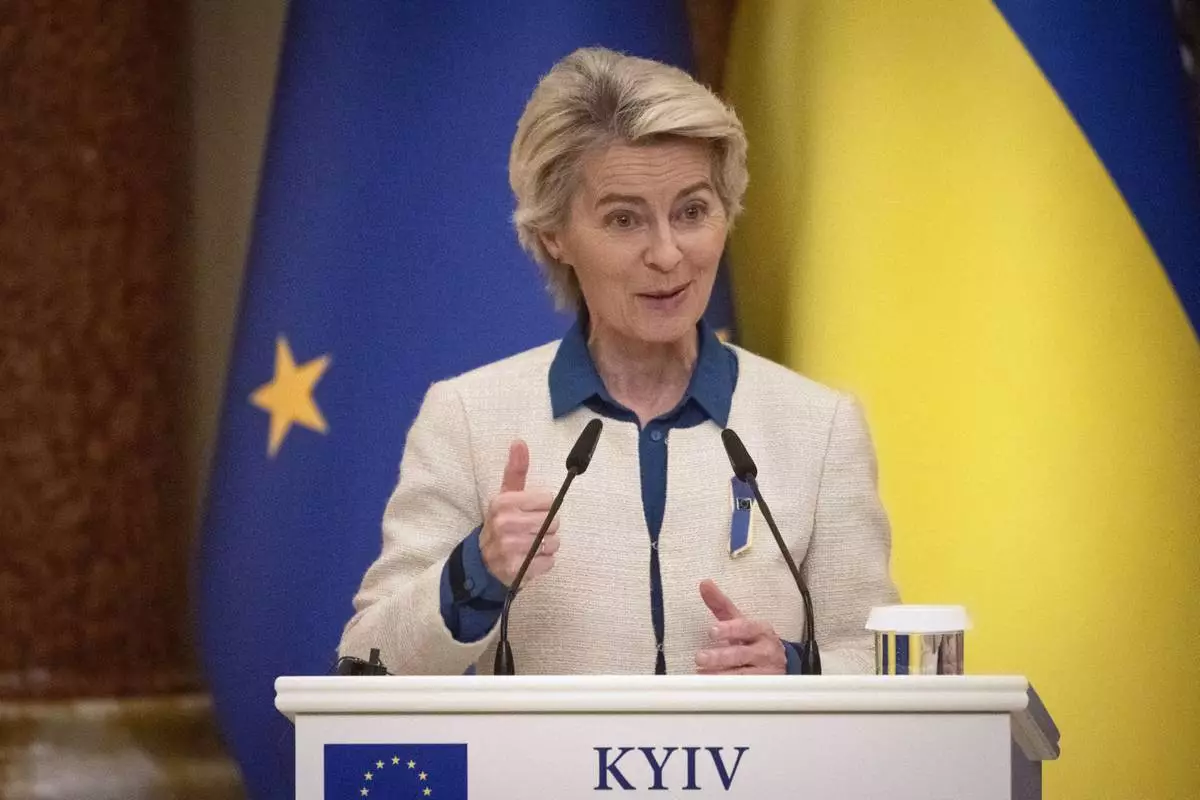
European Commission President Ursula von der Leyen speaks during a joint press conference with Ukrainian President Volodymyr Zelenskyy, not pictured, in Kyiv, Ukraine, Friday, Sept. 20, 2024. (AP Photo/Efrem Lukatsky)
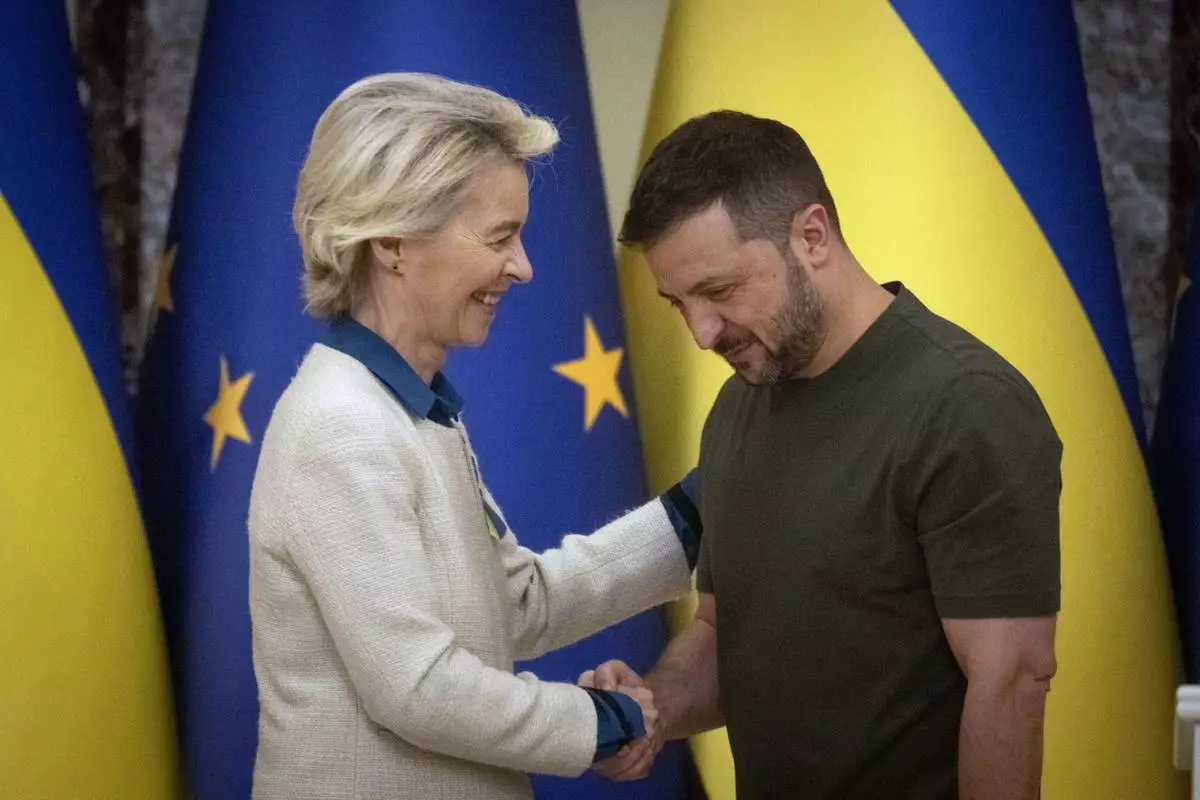
Ukrainian President Volodymyr Zelenskyy, right, and European Commission President Ursula von der Leyen greet each other in Kyiv, Ukraine, Friday, Sept. 20, 2024. (AP Photo/Efrem Lukatsky)
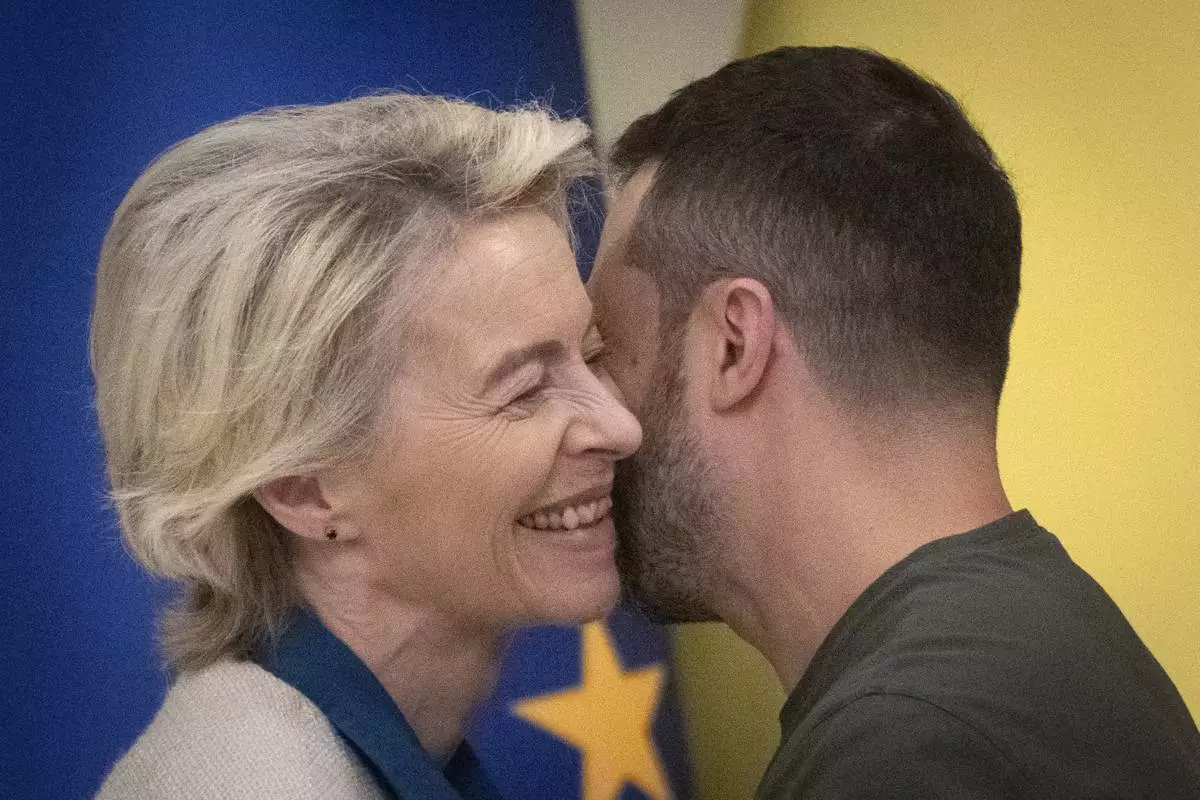
Ukrainian President Volodymyr Zelenskyy, right, and European Commission President Ursula von der Leyen greet each other in Kyiv, Ukraine, Friday, Sept. 20, 2024. (AP Photo/Efrem Lukatsky)
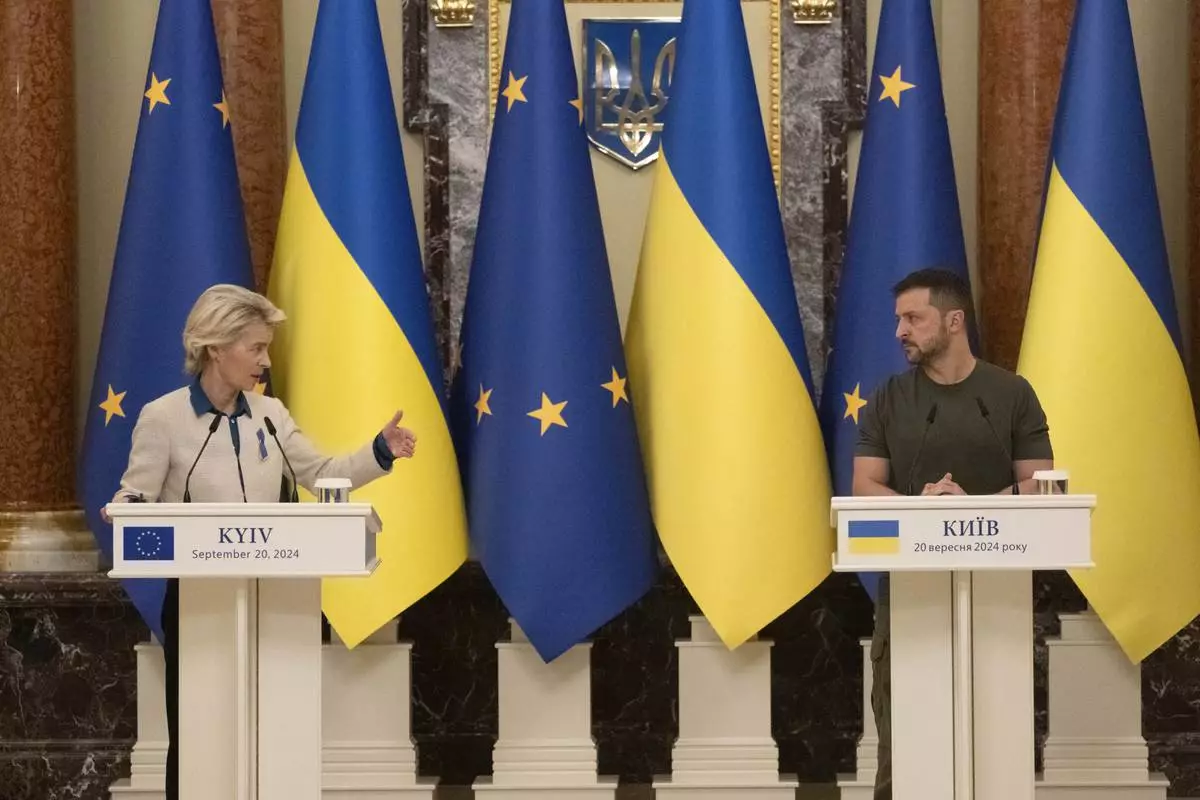
European Commission President Ursula von der Leyen speaks during joint press conference with Ukrainian President Volodymyr Zelenskyy in Kyiv, Ukraine, Friday, Sept. 20, 2024. (AP Photo/Efrem Lukatsky)
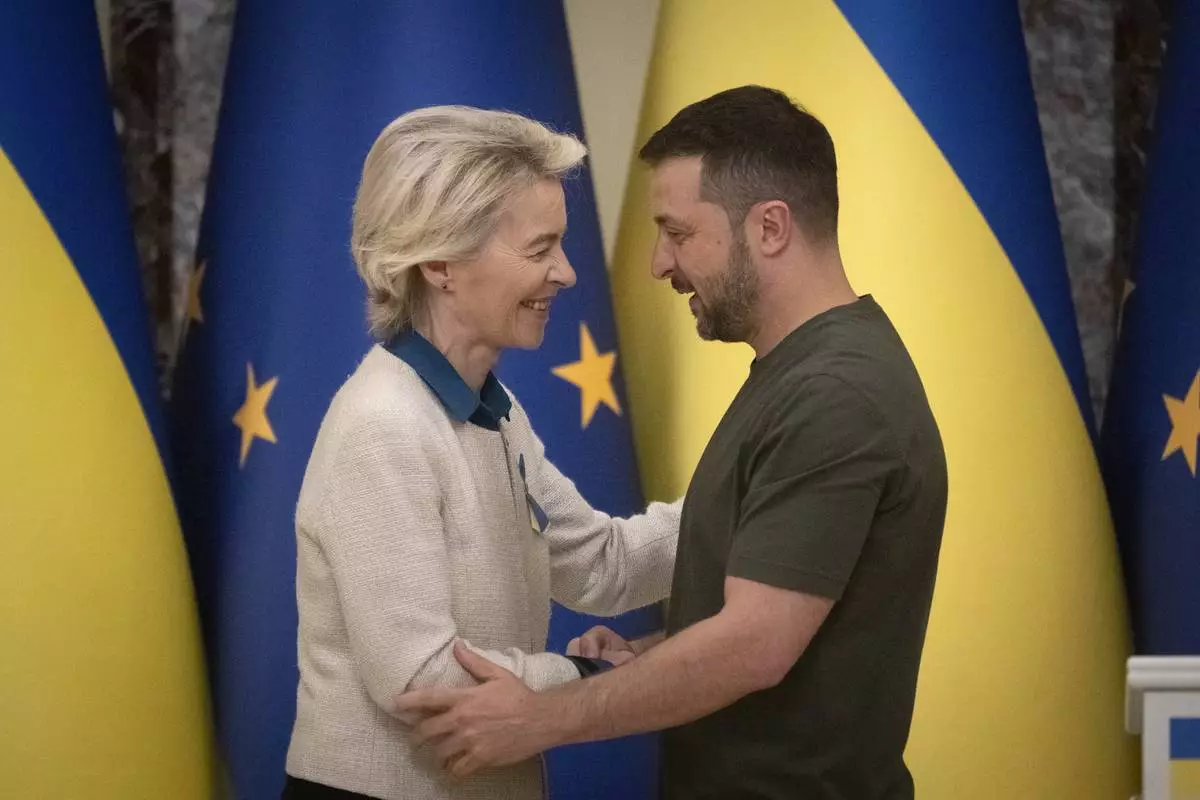
Ukrainian President Volodymyr Zelenskyy, right, and European Commission President Ursula von der Leyen greet each other in Kyiv, Ukraine, Friday, Sept. 20, 2024. (AP Photo/Efrem Lukatsky)
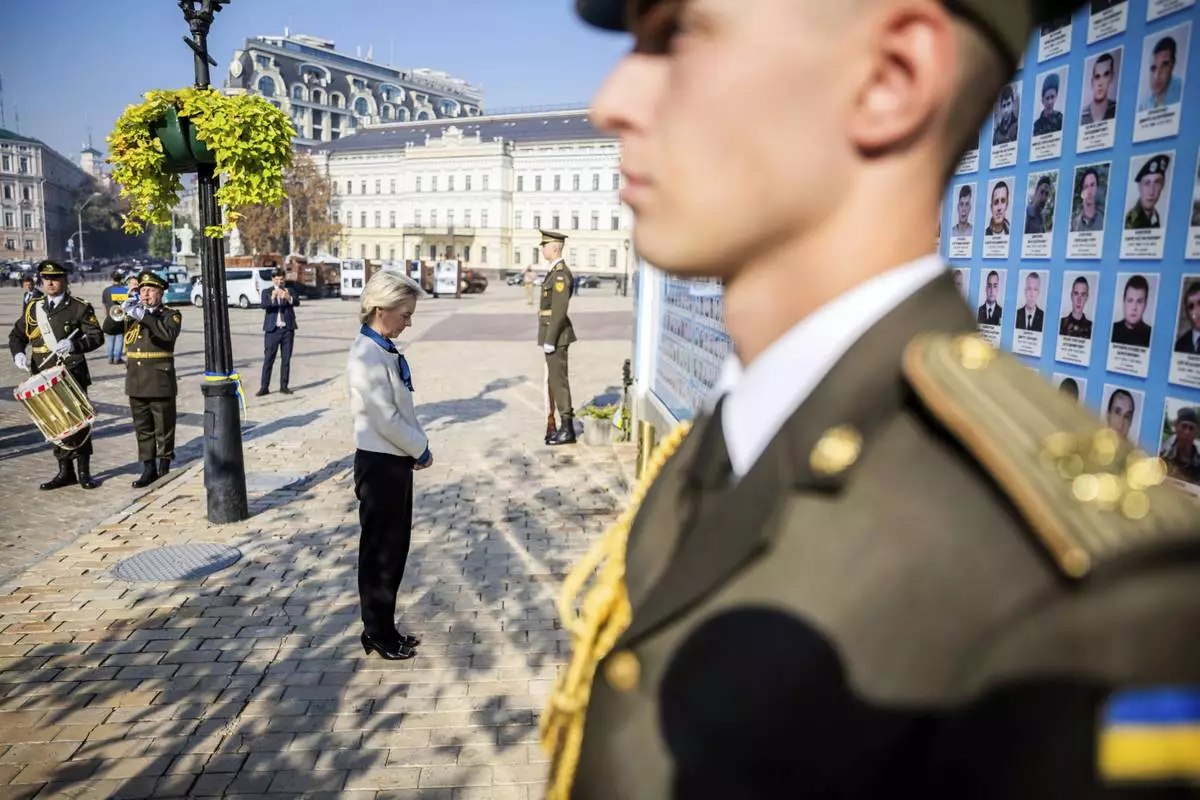
President of the European Commission Ursula von der Leyen, center, visits a wall commemorating the fallen Ukrainian soldiers in the war with Russia, in Kyiv, Ukraine, Friday, Sept. 20, 2024. (Christoph Soeder, Pool via AP)
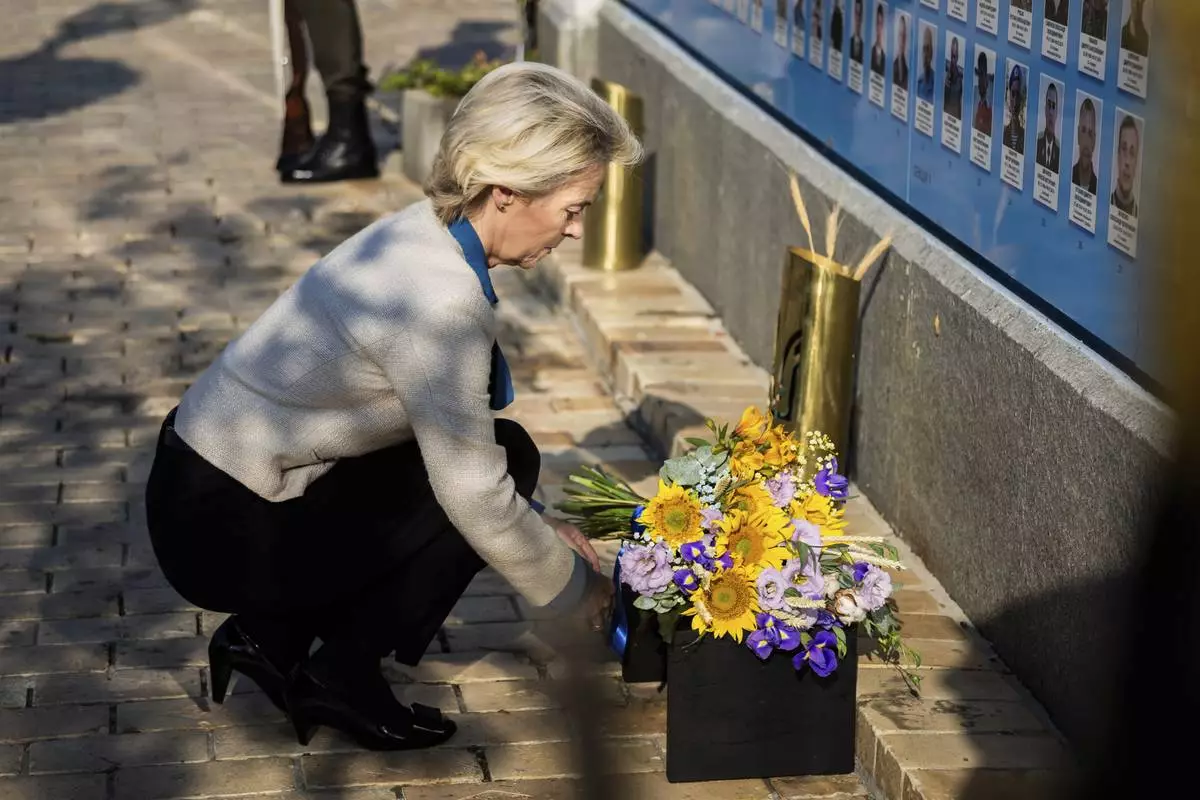
President of the European Commission Ursula von der Leyen places a bouquet of flowers at a wall commemorating the fallen Ukrainian soldiers in the war with Russia, in Kyiv, Ukraine, Friday, Sept. 20, 2024. (Christoph Soeder, Pool via AP)
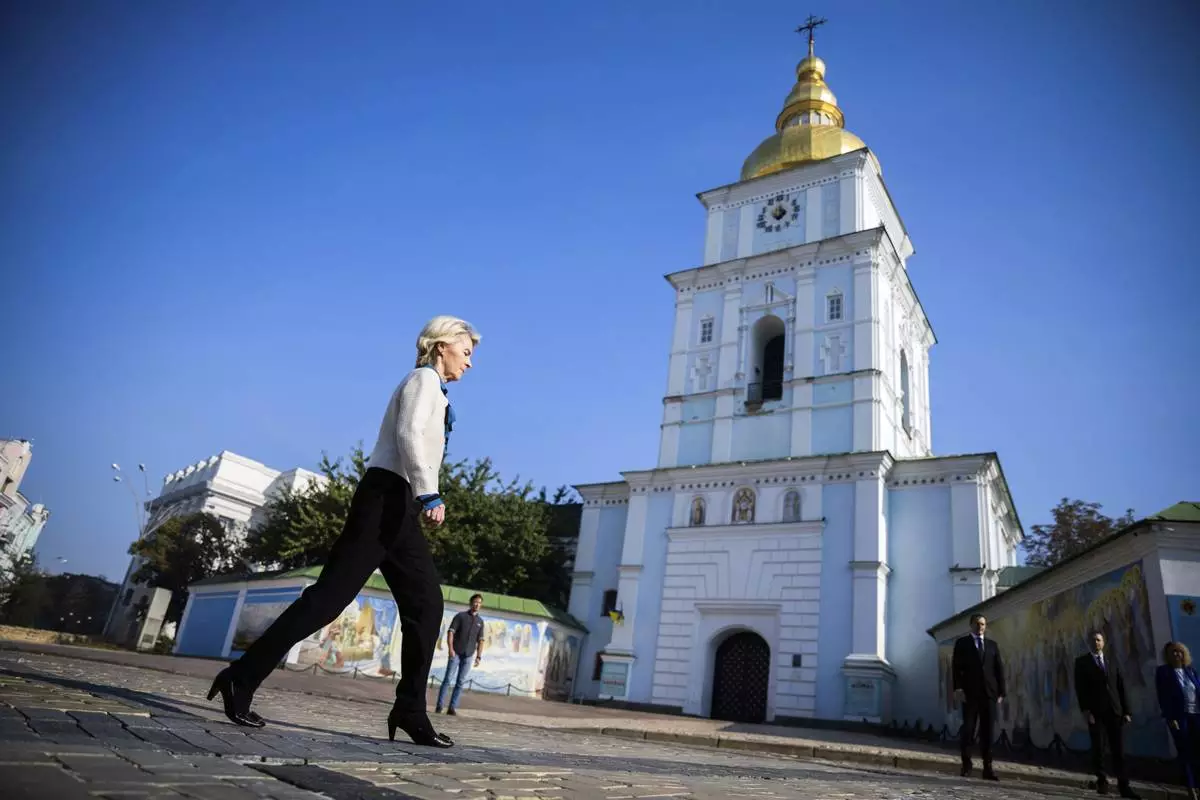
President of the European Commission Ursula von der Leyen, left, walks past St. Michael's Monastery on her way to visit a memorial wall commemorating the fallen Ukrainian soldiers in the war with Russia, in Kyiv, Ukraine, Friday, Sept. 20, 2024. (Christoph Soeder, Pool via AP)
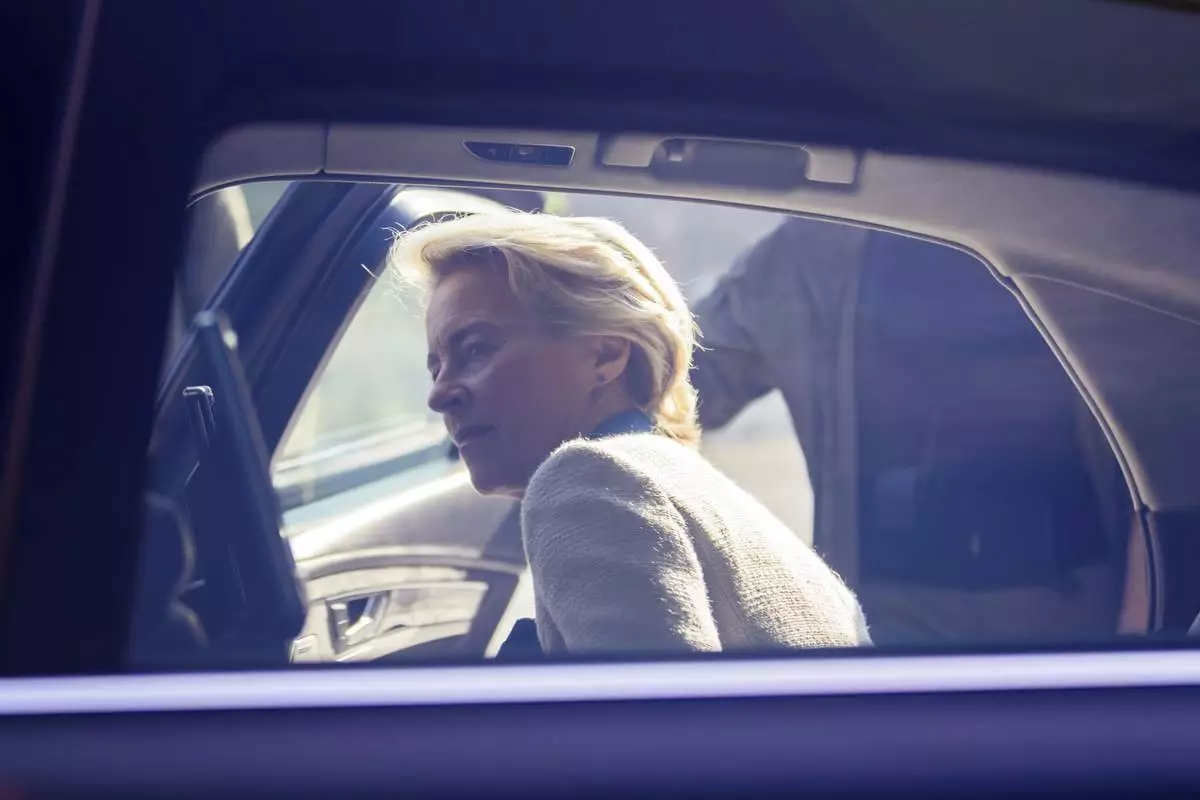
President of the European Commission Ursula von der Leyen gets into a car after visiting a memorial wall commemorating the fallen Ukrainian soldiers in the war with Russia, in Kyiv, Ukraine, Friday, Sept. 20, 2024. (Christoph Soeder, Pool via AP)
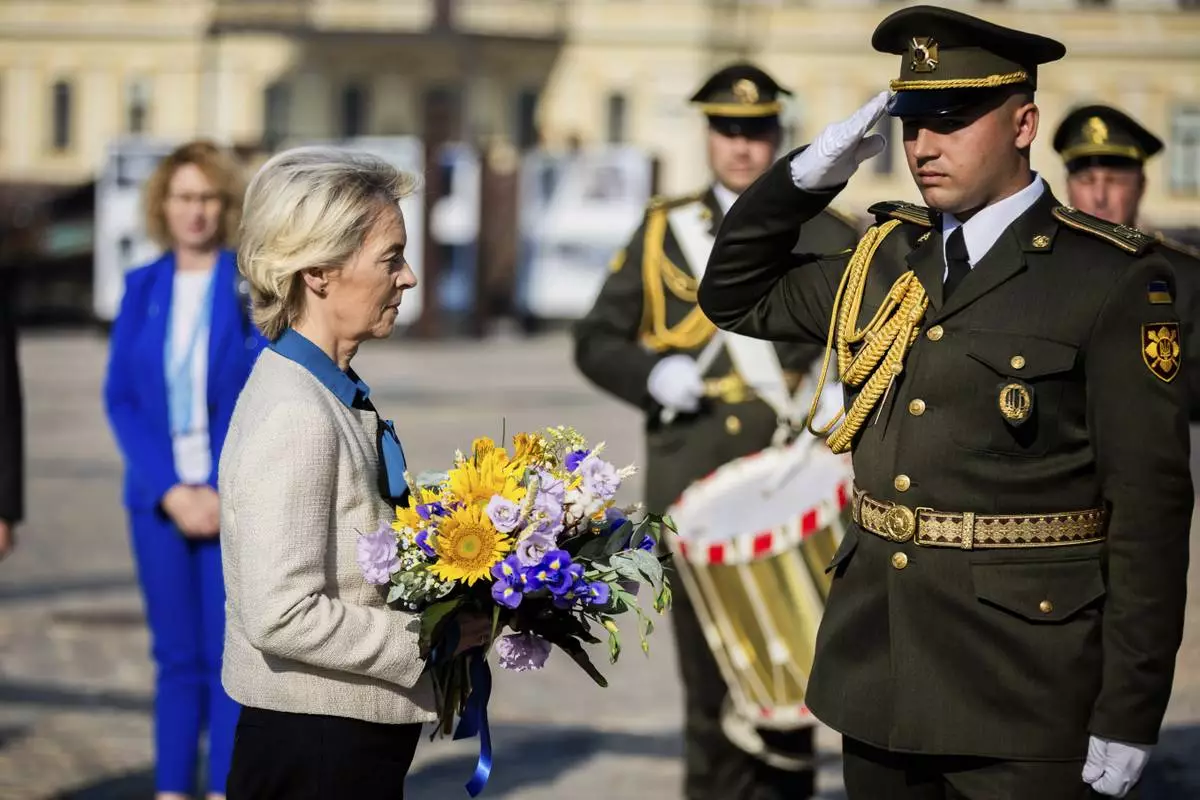
President of the European Commission Ursula von der Leyen, left, holds a bouquet of flowers to place at a wall commemorating the fallen Ukrainian soldiers in the war with Russia, in Kyiv, Ukraine, Friday, Sept. 20, 2024. (Christoph Soeder, Pool via AP)
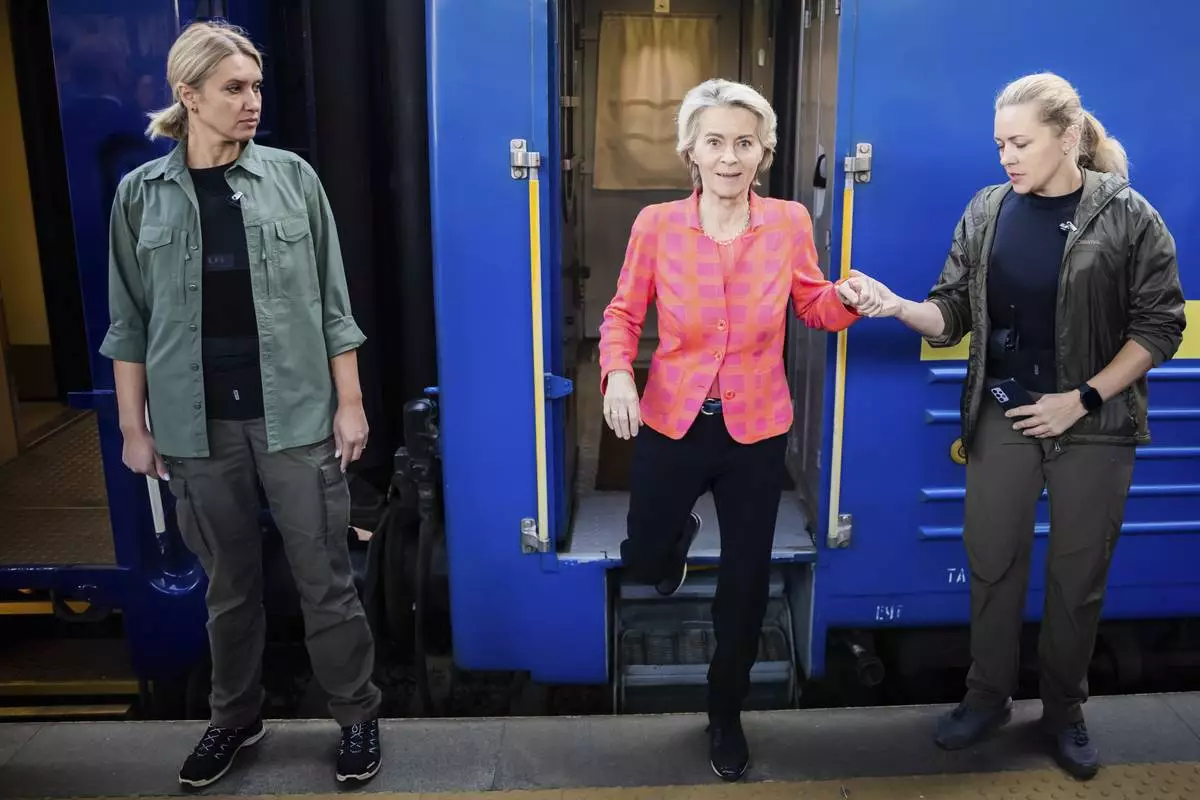
President of the European Commission, Ursula von der Leyen arrives at the railway station in Kyiv, Ukraine, Friday, Sept. 20, 2024. (Christoph Soeder, Pool via AP)
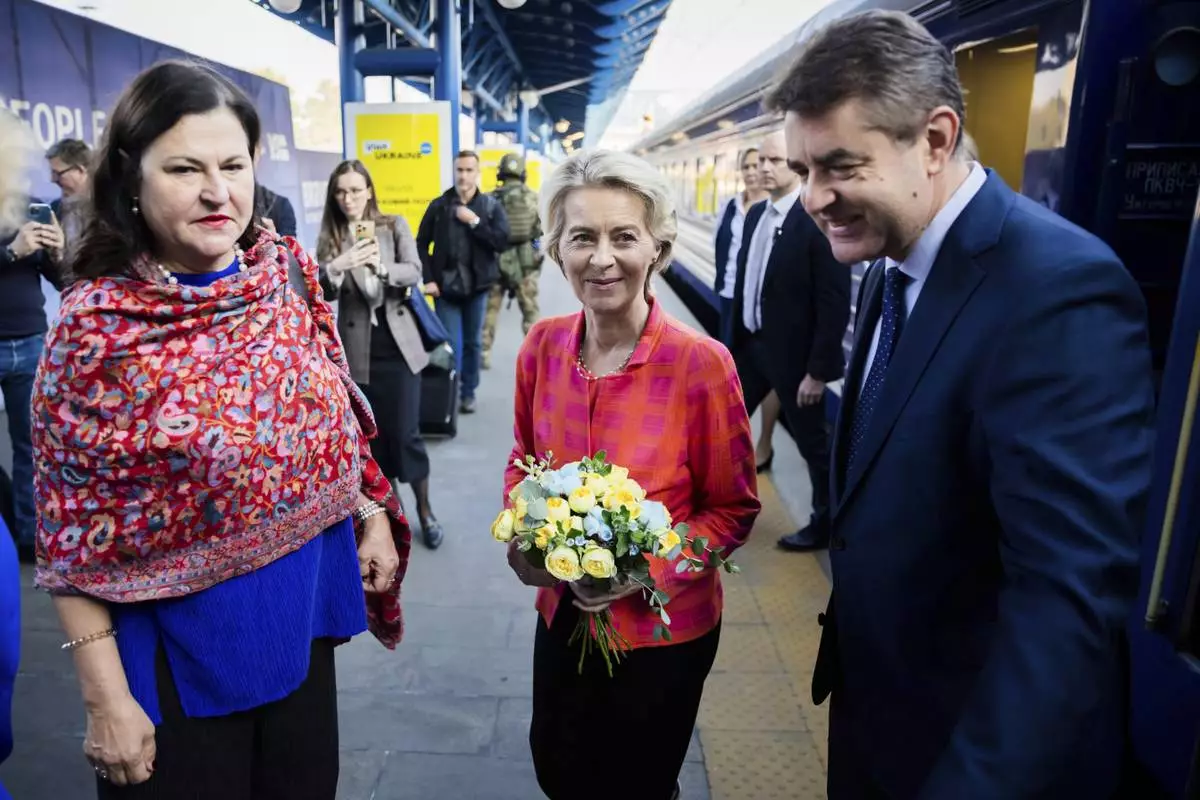
President of the European Commission, Ursula von der Leyen, center, is greeted as she arrives at the railway station in Kyiv, Ukraine, Friday, Sept. 20, 2024. (Christoph Soeder, Pool via AP)
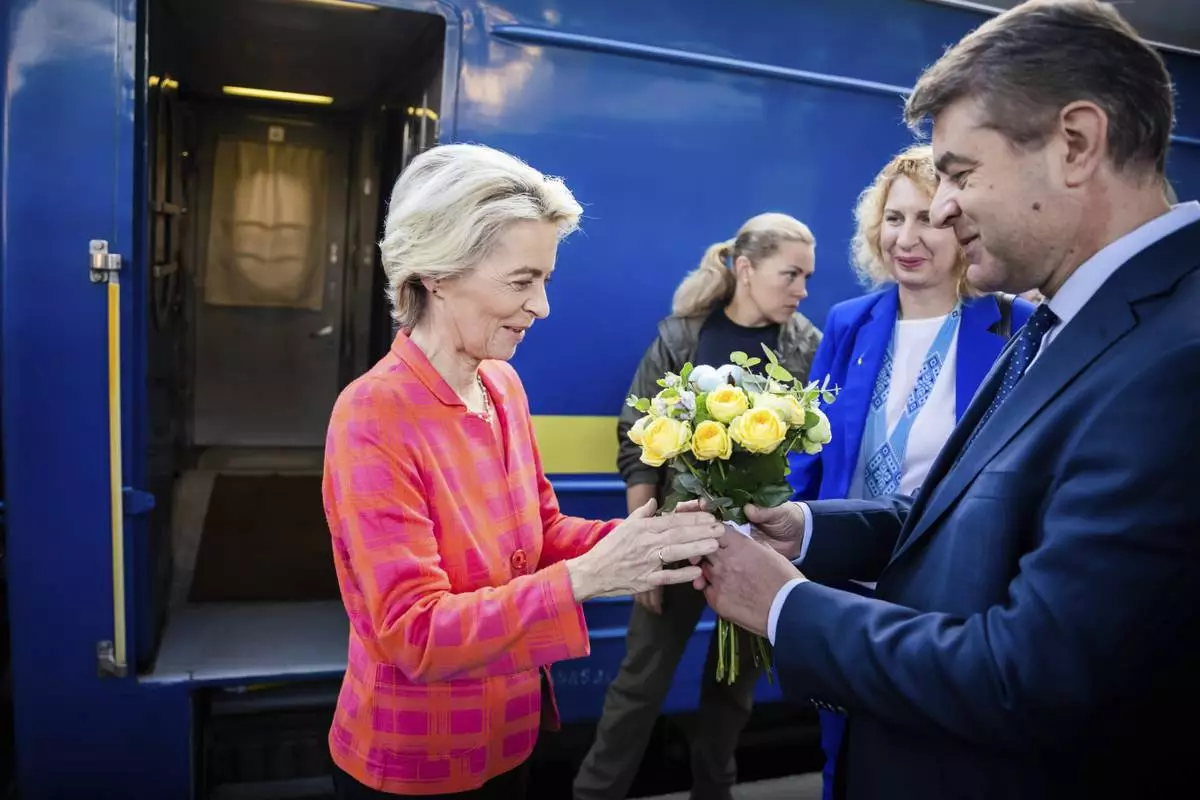
President of the European Commission, Ursula von der Leyen, left, is greeted as she arrives at the railway station in Kyiv, Ukraine, Friday, Sept. 20, 2024. (Christoph Soeder, Pool via AP)
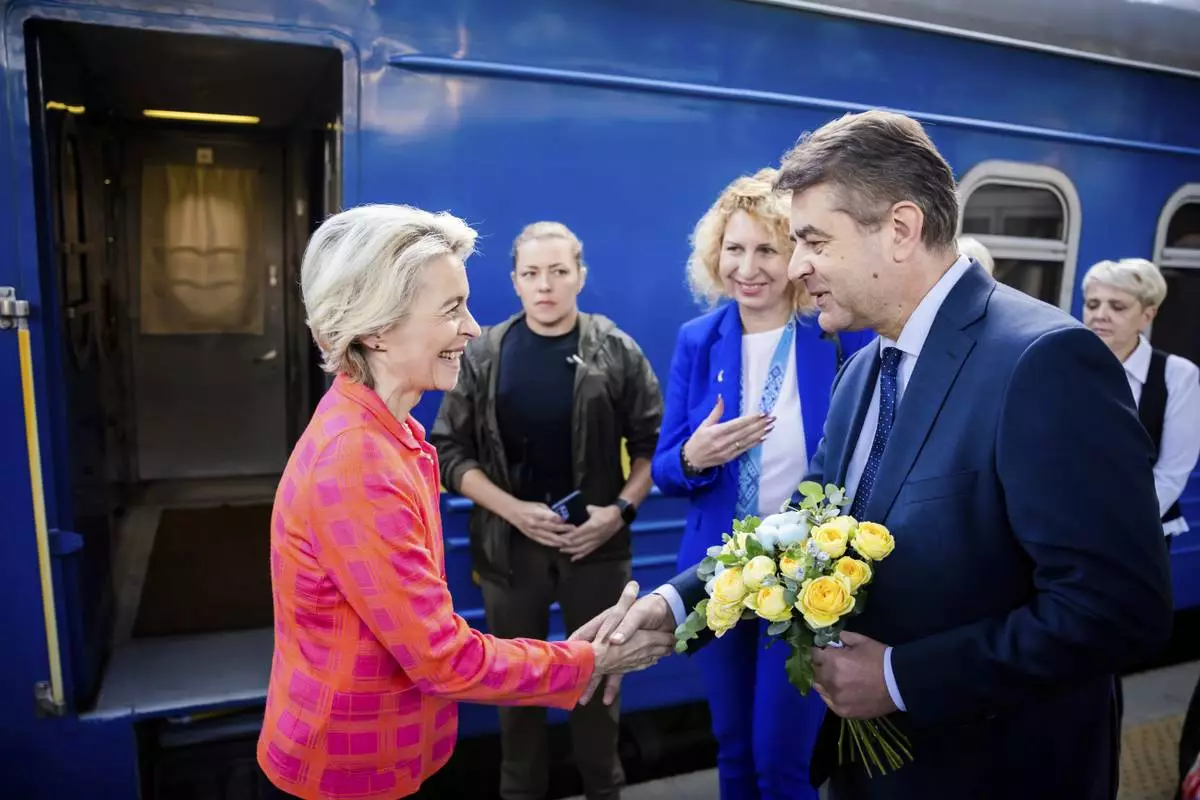
President of the European Commission, Ursula von der Leyen, left, is greeted as she arrives at the railway station in Kyiv, Ukraine, Friday, Sept. 20, 2024. (Christoph Soeder, Pool via AP)


